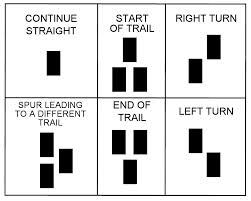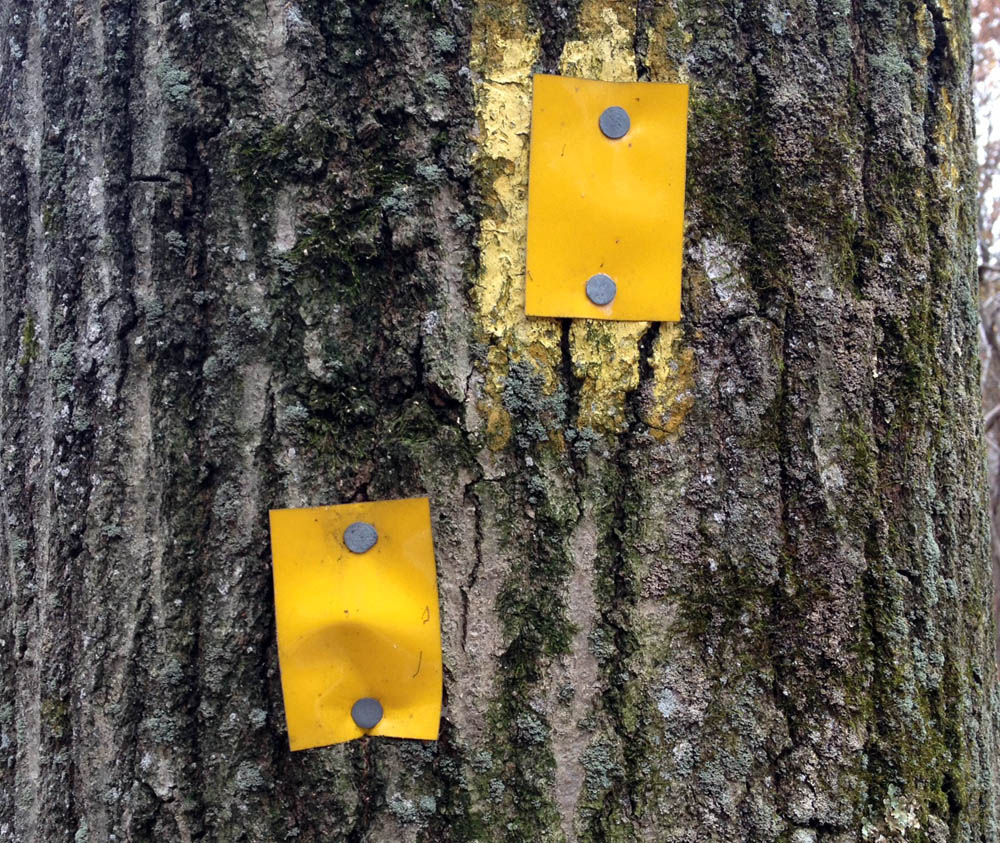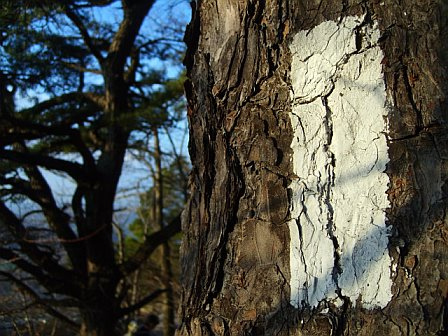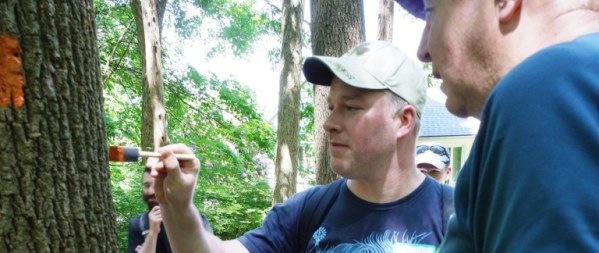We recently went to the New York New Jersey Trails Conference Trail University: Maintenance 101 lecture. There are many more considerations to blazing trails then we could have ever imagined.
1. To start, here's an easy way to remember how to read the blazes that mark the beginning and end of the trails. A for approach, V for victory.
Photo credit: Wikipedia
2. When marking two trails, the blaze for the longer trail goes on top. In the New York area that means the Appalachian Trail (white) is always on top.
3. Maintainers have to be careful in the winter: a blaze on a rock was a good idea until it became a flowing stream...
Photo credit: Wikipedia
4. That goes for trees that will have leaves during the summer too...
Photo credit: www.midatlantichikes.com.
5. Nail plastic blazes 3/4 of an inch away from the tree because trees... grow.
Photo credit: MyHarriman.com
6. The plastic Appalachian Trail blaze costs $2. This explains why the majority of blazes are just white paint!
Photo credit: jeremybailey.files.wordpress.com/
Photo credit: hikeitforward.wordpress.com
7. Speaking of the Appalachian Trail, the trail goes through the Bear Mountain Zoo which, when closed, requires purist thru-hikers to camp out and wait until it opens back up.
Photo credit: oceanicwilderness.com
8. Trail crews decide the width of trails based on their use. Low frequency of backpackers = narrower trails.
Photo credit: NYNJTC
9. Some trail crew volunteers have been doing this for over 40 years.
Photo credit: NYNJTC
In conclusion: Thanks NYNJTC for being awesome. Support 'em here: nynjtc.org











